Search Thermo Fisher Scientific
Invitrogen
NOTCH1 Recombinant Rabbit Monoclonal Antibody (SJ205)
This Antibody was verified by Knockout to ensure that the antibody binds to the antigen stated.
FIGURE: 1 / 13
NOTCH1 Antibody (MA5-32080) in ICC/IF
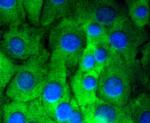
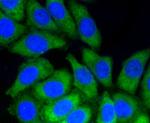
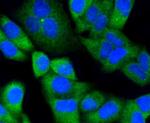
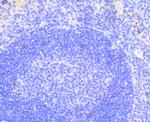
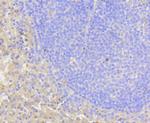
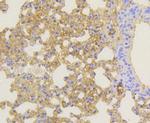
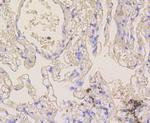
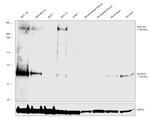
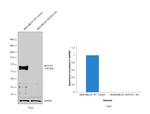
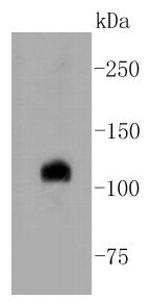
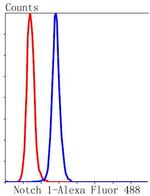
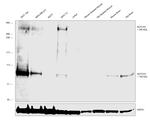
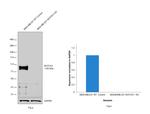
Product Details
MA5-32080
Species Reactivity
Published species
Host/Isotype
Expression System
Class
Type
Clone
Immunogen
Conjugate
Form
Concentration
Purification
Storage buffer
Contains
Storage conditions
Shipping conditions
RRID
Product Specific Information
Recombinant rabbit monoclonal antibodies are produced using in vitro expression systems. The expression systems are developed by cloning in the specific antibody DNA sequences from immunoreactive rabbits. Then, individual clones are screened to select the best candidates for production. The advantages of using recombinant rabbit monoclonal antibodies include: better specificity and sensitivity, lot-to-lot consistency, animal origin-free formulations, and broader immunoreactivity to diverse targets due to larger rabbit immune repertoire.
Target Information
The notch gene belongs to a family of epidermal growth factor (EGF) like homeotic genes, which encode transmembrane proteins with a variable number of cysteine-rich EGF-like repeats in the extracellular region. Four notch genes have been described in mammals: Notch1, Notch2, Notch3 and Notch4(Int-3), which have been implicated in the differentiation of the nervous system and other structures. The EGF-like proteins Delta and Serrate have been identified as ligands of Notch1. Mature Notch proteins are heterodimeric receptors derived from the cleavage of Notch pre-proteins into an extracellular subunit (NEC) containing multiple EGF-like repeats and a transmembrane subunit including intracellular region (Ntm).
For Research Use Only. Not for use in diagnostic procedures. Not for resale without express authorization.
Bioinformatics
Protein Aliases: Drosophila Notch homolog 1 (controlling the the ectodermal and neural cell fate in Drosophila); major type A protein; Motch A; mT14; Neurogenic locus notch homolog protein 1; Notch 1; Notch gene homolog 1; Notch homolog 1, translocation-associated; p300; RP23-306D20.12; RP23-306D20.12-001; Translocation-associated notch protein TAN-1; transmembrane receptor Notch1
Gene Aliases: 9930111A19Rik; AOS5; AOVD1; hN1; lin-12; Mis6; Motch; N1; NOTCH; NOTCH1; TAN1
UniProt ID: (Human) P46531, (Mouse) Q01705, (Rat) Q07008
Entrez Gene ID: (Human) 4851, (Mouse) 18128, (Rat) 25496

Performance Guarantee
If an Invitrogen™ antibody doesn't perform as described on our website or datasheet,we'll replace the product at no cost to you, or provide you with a credit for a future purchase.*
Learn more
We're here to help
Get expert recommendations for common problems or connect directly with an on staff expert for technical assistance related to applications, equipment and general product use.
Contact tech support
